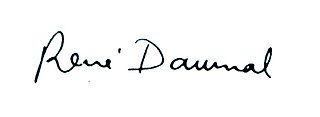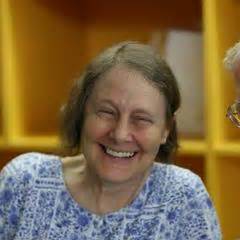A Quote by Tariq Ramadan
Our democratic societies are in danger. In allowing ourselves to be infiltrated by fear, to be blinded by the passion of identity, we are entertaining the most serious illusions about our freedom.
Related Quotes
There is no hate without fear. Hate is crystallized fear, fear's dividend, fear objectivized. We hate what we fear and so where hate is, fear is lurking. Thus we hate what threatens our person, our liberty, our privacy, our income, our popularity, our vanity and our dreams and plans for ourselves. If we can isolate this element in what we hate we may be able to cease from hating... Hate is the consequence of fear; we fear something before we hate; a child who fears noises becomes the man who hates them.
In order to find God in ourselves, we must stop looking at ourselves, stop checking and verifying ourselves in the mirror of our own futility, and be content to be in Him and to do whatever He wills, according to our limitations, judging our acts not in the light of our own illusions, but in the light of His reality which is all around us in the things and people we live with.
God's revelation... unmasks our illusions about ourselves. It exposes our pride, our individualism, our self-centeredness - in short, our sin. But worship also offers forgiveness, healing, transformation, motivation, and courage to work in the world for God's justice and peace - in short, salvation in its largest sense.
Feelings and stories of unworthiness and shame are perhaps the most binding element in the trance of fear. When we believe something is wrong with us, we are convinced we are in danger. Our shame fuels ongoing fear, and our fear fuels more shame. The very fact that we feel fear seems to prove that we are broken or incapable. When we are trapped in trance, being fearful and bad seem to define who we are. The anxiety in our body, the stories, the ways we make excuses, withdraw or lash out—these become to us the self that is most real.
We will not be driven by fear into an age of unreason, if we dig deep in our history and our doctrine, and remember that we are not descended from fearful men ... We proclaim ourselves, as indeed we are, the defenders of freedom, wherever it continues to exist in the world, but we cannot defend freedom abroad by deserting it at home.
We lost not only through death, but also by leaving and being left, by changing and letting go and moving on. And our losses include not only our separations and departures from those we love, but our conscious and unconscious losses of romantic dreams, impossible expectations, illusions of freedom and power, illusions of safety -- and the loss of our own younger self, the self that thought it would always be unwrinkled and invulnerable and immortal.
If we are at all sensitive to the life around us, to one another's pains and joys,
to the beauty and fragility of the Earth, it is all about being broken open, allowing ourselves to
step out from out hardened veneers and expose our core, allowing ourselves to be vulnerable in our emotional response to the world. And how can we not respond? This is what I mean by being 'broken open.' To engage. To love. Any one of these actions of the heart will lead to a personal transformation that bears collective gifts.
It is only when we want to take our lives out of the Father’s hands and have them under our own control that we find ourselves gripped with anxiety. The secret of freedom from anxiety is freedom from ourselves and abandonment of our own plans. But that spirit emerges in our lives only when our minds are filled with the knowledge that our Father can be trusted implicitly to supply everything we need.






































